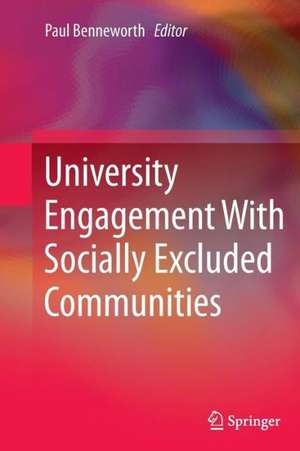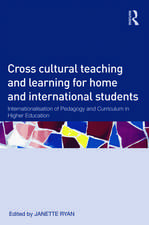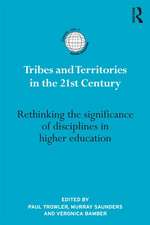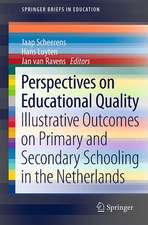University Engagement With Socially Excluded Communities
Editat de Paul Benneworthen Limba Engleză Paperback – 14 dec 2014
| Toate formatele și edițiile | Preț | Express |
|---|---|---|
| Paperback (1) | 643.65 lei 6-8 săpt. | |
| SPRINGER NETHERLANDS – 14 dec 2014 | 643.65 lei 6-8 săpt. | |
| Hardback (1) | 650.04 lei 6-8 săpt. | |
| SPRINGER NETHERLANDS – 13 noi 2012 | 650.04 lei 6-8 săpt. |
Preț: 643.65 lei
Preț vechi: 757.24 lei
-15% Nou
Puncte Express: 965
Preț estimativ în valută:
123.17€ • 131.70$ • 102.69£
123.17€ • 131.70$ • 102.69£
Carte tipărită la comandă
Livrare economică 17 aprilie-01 mai
Preluare comenzi: 021 569.72.76
Specificații
ISBN-13: 9789400792746
ISBN-10: 9400792743
Pagini: 364
Ilustrații: XII, 352 p.
Dimensiuni: 155 x 235 x 19 mm
Greutate: 0.51 kg
Ediția:2013
Editura: SPRINGER NETHERLANDS
Colecția Springer
Locul publicării:Dordrecht, Netherlands
ISBN-10: 9400792743
Pagini: 364
Ilustrații: XII, 352 p.
Dimensiuni: 155 x 235 x 19 mm
Greutate: 0.51 kg
Ediția:2013
Editura: SPRINGER NETHERLANDS
Colecția Springer
Locul publicării:Dordrecht, Netherlands
Public țintă
ResearchCuprins
Preface.- Contributors.- Part 1: University Engagement with Socially Excluded Communities.- Part 2: Internal University Transformations for Effective Regional Engagement.- Part 3: Transformations in the Epistemic ‘Idea’ of a University.- Part 4: Transformation in the Social Environment for University-Community Engagement.- Part 5: Conclusions.- Index.
Textul de pe ultima copertă
This volume provides insightful analysis of the way higher education engages with socially excluded communities. Leading researchers and commentators examine the validity of the claim that universities can be active facilitators of social mobility, opening access to the knowledge economy for formerly excluded groups. The authors assess the extent to which the ‘Academy’ can deliver on its promise to build bridges with communities whose young people often assume that higher education lies beyond their ambitions. The chapters map the core dynamics of the relationship between higher education and communities which have bucked the more general trend of rapidly rising student numbers. Contributors also take the opportunity to reflect on the potential impact of these dynamics on the evolution of the university’s role as a social institution. The volume was inspired by a symposium attended by a wide spectrum of participants, including government, senior university managers, academic researchers and community groups based in areas suffering from social exclusion. It makes a substantive contribution to an under-researched field, with authors seeking to both shape solutions as well as better diagnose the problem. Some chapters include valuable contextual analysis, using empirical data from North America, Europe and Australia to add substance to the debates on policy and theory. The volume seeks to offer a defining intellectual statement on the interaction between the concept of a ‘university’ and those communities historically missing from higher education participation, the volume deepens our understanding of what might characterise an ‘engaged’ university and strengthens the theoretical foundations of the topic.
Caracteristici
Unrivalled analysis of a high-profile issue, with pressure increasing on universities to 'engage' An influential platform for cutting-edge policy ideas International and multidisciplinary perspectives informed by empirical data from numerous institutions











